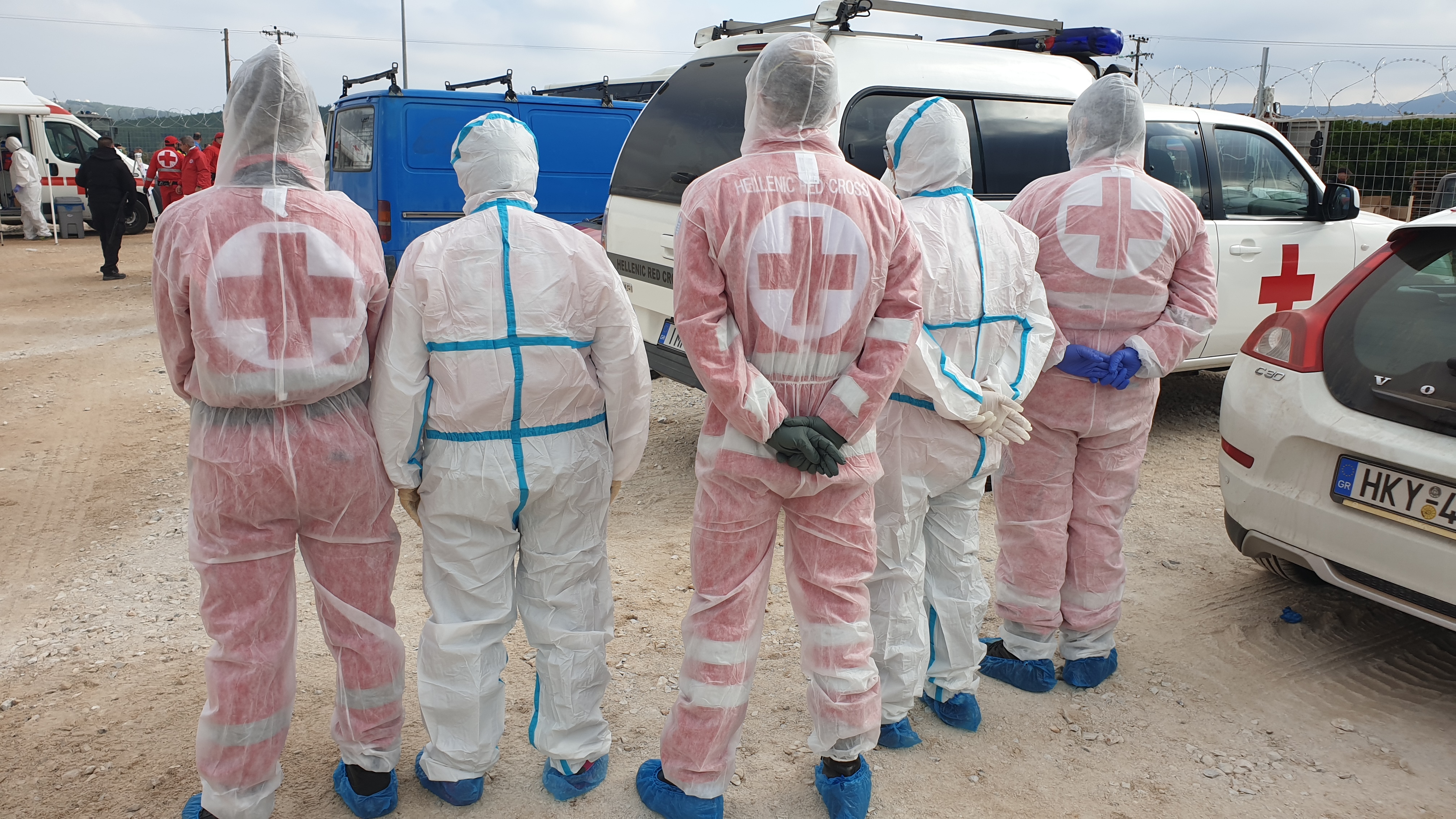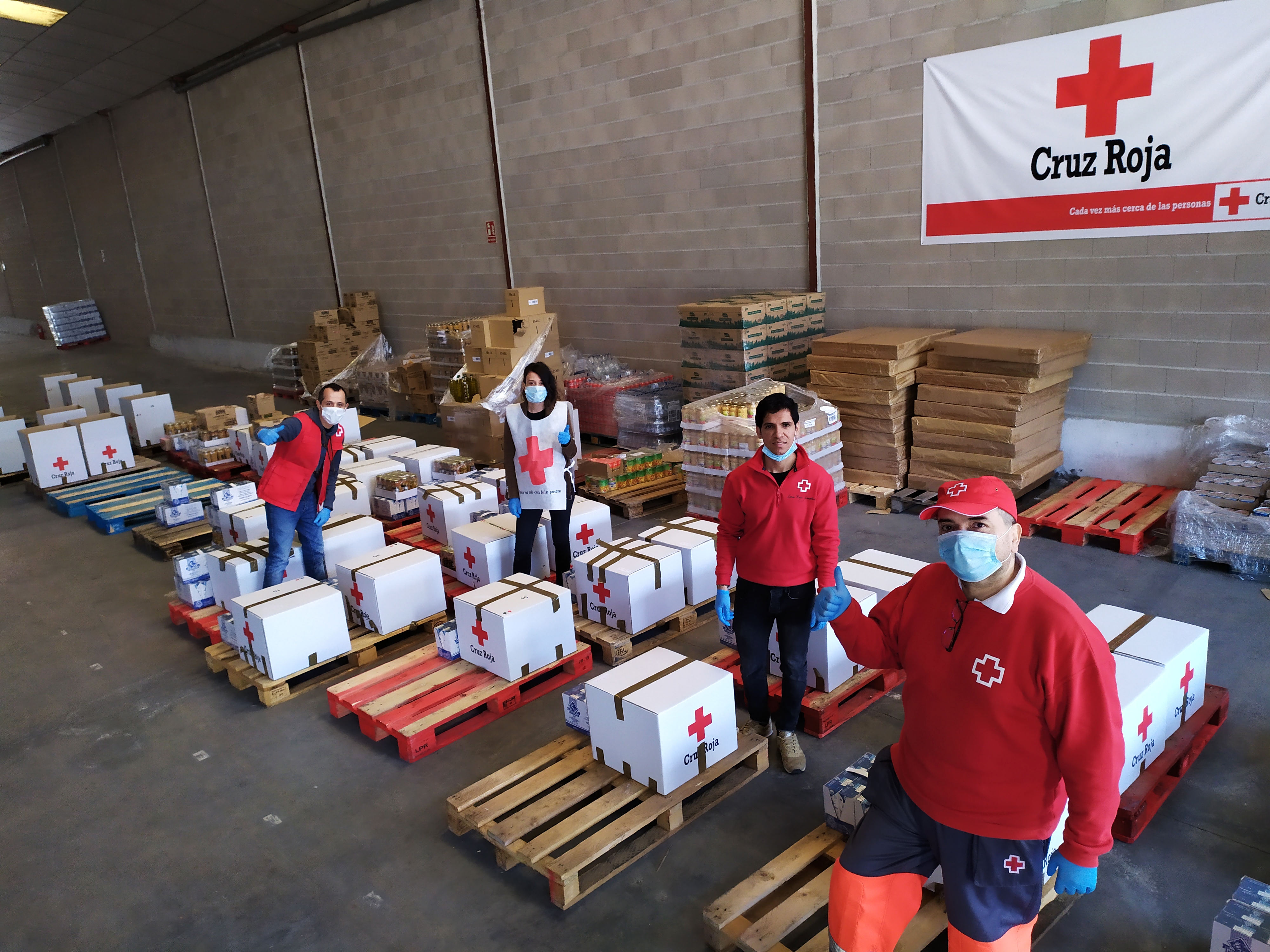Supporting the Most Vulnerable
With the novel coronavirus disease (COVID-19) continuing to impact the health and wellbeing of millions of people across Europe, hundreds of thousands of Red Cross staff and volunteers are working to support local communities. In times of crisis, certain groups are often more affected than others. Currently, many families, the elderly, migrants and homeless people are struggling with reduced income, a lack of basic means and goods, fragile housing, or the psychological effects of isolation following weeks of confinement. European Red Cross Societies are implementing a variety of activities to help alleviate this burden and provide much needed assistance to the most vulnerable people.
In many countries, older people are experiencing increased threats and challenges. Although all age groups can contract COVID-19, older people face significant risk of developing severe illness. As they are recommended to avoid visits from family or friends, many lack their usual support networks and encounter extreme levels of isolation, especially those living alone. In Croatia, the Czech Republic and Sweden, Red Cross volunteers are delivering basic necessities, such as food and medicine, to the doorsteps of older people within their communities. To help combat feelings of loneliness, the Danish Red Cross has created an online platform on which volunteers can pay a digital visit to seniors.

Confinement policies have also led to increasing cases of domestic and gender-based violence. With victims not having an opportunity to escape their attacker during lockdown, the severity of this violence has also heightened in many cases. In Spain, the Red Cross has published a guide on what victims of domestic violence can do to improve their situation at home, including emergency numbers and helplines to call for practical, legal and emotional support. The Spanish Red Cross also runs shelters to provide a safe space for victims of domestic violence.
Homeless people are also particularly vulnerable, as staying at home, social distancing, and increasing hygiene practices may be more challenging or even impossible for them. Furthermore, respiratory diseases are quite common among people sleeping rough, which further increases the risk of becoming seriously ill. In response, the Belgian Red Cross has stepped up its action to support this vulnerable group. In Brussels for instance, shelters are being established to accommodate homeless people while respecting the social distancing rules and treating infected patients in separate areas. A team of volunteers also tours the city every evening, distributing food and hygiene products and disseminating reliable information about the outbreak. Similarly, the Italian Red Cross is distributing shopping vouchers to people in need as part of the campaign “It Tempo della Gentillezza” (The Time of Kindness).

Migrants, including refugees, are at greater risk because of language barriers, legal status, limited access to medical care and poor living conditions, especially when living in overcrowded camps. The Bulgarian Red Cross and the Hellenic Red Cross have translated informative materials which they distribute in reception centres. The French Red Cross has transformed its activities in refugee camps and settlements, such as those in Calais or Dunkirk. Beyond raising awareness about the outbreak, staff and volunteers also provide medical check-ups, accommodation and refer migrants with COVID-19 to relevant professionals. All are advocating for more appropriate attention to the situation of migrants in the COVID-19 response.
Roma communities are also facing greater difficulties during the pandemic, as many of them lack enough access to health care, water, food and education. A majority of Roma families depend on seasonal employment, which is currently on hold in many countries and resulting in reduced incomes. Slovak Red Cross volunteers are reaching out to local Roma communities to promote transmission prevention measures, such as the strict practice of hygiene, and distribute protective masks which are now compulsory in Slovakia.
These vulnerable people and groups are in urgent need of support, both in the immediate term and in light of long-term health-related and socio-economic consequences that will span well beyond the COVID-10 pandemic. Red Cross Societies across Europe are playing an important role in ensuring these groups are looked after. They will continue to carry out extraordinary activities for months to come.
For media inquiries, please contact Eva Oyón on: eva.oyon@redcross.eu or +32 2 235 09 22

